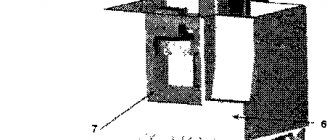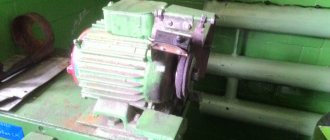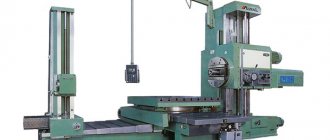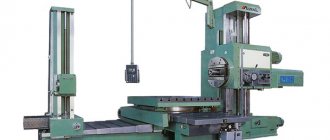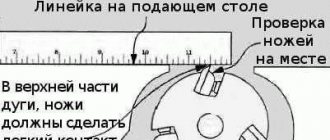If you like creating metal products, and at the same time want to have just such a job in the future, a CNC operator will be an excellent solution.
Both on the Internet and on message boards, you can often find advertisements where companies are looking for a CNC operator. Many graduates of specialized educational institutions often receive promising jobs with good pay. However, a number of questions arise in parallel.
For example, how relevant is this work, what does a specialist need to do, what operations is he responsible for, how difficult is it, and so on. In this article we will try to analyze what the essence of this vacancy is.
What categories are there?
In general, working as a CNC machine operator is not for everyone. Specialists who have previously completed their rank are allowed to access the equipment.
Below we suggest that you familiarize yourself with the main types of work categories.
- Second category. The essence is to perform processing of parts with a simple design with an average of 12-14 qualifications on specialized equipment configured to perform one type of processing. As a rule, specialists who have successfully completed the second category can begin processing bushings and screws. Their responsibilities may include drilling blind and through holes, the diameter of which is no more than 24 millimeters. It is allowed to produce parts with large or medium dimensions, where a pressed profile acts as a blank.
- Third category. In this case, working as a CNC operator involves carrying out activities on processing metal parts of medium and high levels of complexity for 8-11 qualifications. Moreover, the machine itself can be configured to perform several types of work that require three or more processing tools. Specialized companies can assign an employee to turn external contours and give him an order for thread cutting and milling work. As for the holes, their diameter can exceed 24 millimeters. Responsibilities may include performing machining using a rotary lathe, etc.
- Fourth category. The essence of the work comes down mainly to processing parts of an increased level of complexity according to 7-10 qualifications. The specialist has sufficient knowledge to manage several groups of machines. Maintenance of multi-purpose machines, as well as robotic equipment, is allowed. After receiving the fourth category, turning work and finishing of parts characterized by complex geometric shapes are possible. It is possible to process parts of large dimensions - for example, turbine and compressor casings, wing tips, chords, beams, center sections, spars, edgings, and so on.
- Fifth category. The highest degree of qualification of specialists. Includes work on 6-7 qualifications on specialized machines, specially configured for processing complex parts, where rearrangement is required from time to time, as well as installation of combined fastening systems. It is possible to process shafts to create threads whose length is more than 150 centimeters. Qualification allows you to operate milling and turning machines with gearboxes.
How to increase rank
To work in accordance with your qualifications, you must regularly take special training courses. According to established rules, a new rank is assigned gradually. For example, if a specialist has previously performed work typical of specialists of the fifth category, but he only has the third, he will first have to pass the fourth, and then get the fifth.
Note! If a specialist shows unsatisfactory results during advanced training courses, the rank remains the same. The resulting rank is assigned to the operator.
The essence of the responsibilities of a CNC machine operator
Designed by pch-vector/Freepik
A computer-controlled machine is a kind of hybrid of a computer and a milling, lathe, or carpentry machine. There are also models that carry out the entire complex of turning complex volumetric parts, alternating several different operations.
In general terms, how a CNC machine works: a workpiece is placed inside a closed chamber or on a table, which is processed by the tool. Its positioning is specified by a special program. In this case, a person does not participate in the process; automation does everything for him.
The product is manufactured according to a pre-written algorithm, which is written in the program code of the computer of the CNC machine (on the hard disk, magnetic tape, punched cards, etc.).
The operator of computer-controlled machines, as mentioned above, does not need to manually grind the part. Its work comes down to several functions:
- monitor the proper operation of the machine;
- enter the necessary commands from the control panel;
- placing the workpiece in the chamber, removing the finished part;
- pre-adjustment, adjustment of individual components and connections of the machine.
Experienced specialists also have the right to manage groups of machines, as well as supervise the work of subordinates. At the same time, highly qualified operators can service universal machines that carry out several technological operations per cycle.
Also, qualified workers help CNC machine tool adjusters in setting up equipment and drawing up processing programs. Often the operator combines these two positions.
An experienced specialist can service several CNC machines at a time, ensuring the continuity of the production cycle. This requires great care and skill, as well as the ability to correctly calculate processing time.
Additional features
As practice shows, working as an operator of modern CNC machines differs from all others in that the equipment has an increased degree of automation. A specialist who maintains numerically controlled equipment is indicated in the work book not just as a milling machine operator or lathe operator, but as a full-fledged setup operator. In the hierarchy, this is a more prestigious profession.
The principle of operation of a CNC machine is to create metal parts according to a pre-thought-out algorithm of actions, presented in the form of a separate program. In most cases, the employee’s responsibilities include setting the program, making adjustments if necessary, and promptly taking action when alarms occur.
A special feature of the vacancy is that it requires a rank. It is he who influences what work the company can entrust to a specialist. According to generally established practice, the higher the rank, the more complex the actions will be. Accordingly, an increase in complexity always provokes an increase in the level of wages.
It may seem that this kind of work is widespread, and it requires a certain set of skills. On the other hand, successful work on CNC machines always requires high-quality engineering training. Sooner or later, the employee will have to identify the drawings and understand what is required of him. In some cases, you will have to make calculations and calculations, modify the drawings proposed by the customer, taking into account his needs.
The profession is not complete without the use of programming languages. To check the finished product, you need to be able to use measuring equipment and navigate metrology.
Description of the profession
An adjuster of machine tools and computer-controlled manipulators is a worker who specializes in mechanical and electromechanical adjustments to the operation of industrial equipment.
Most often, a specialist of this kind is involved in industrial enterprises that have at their disposal various complex equipment, as well as a large amount of automatic and semi-automatic equipment.
To perform activities of this nature, you must have good technical literacy, since it has a very wide range of tasks:
- setting up mechanical and electromechanical elements of machine tools;
- installation and replacement of parts;
- setting up operating modes and, if necessary, adjusting the set parameters;
- inspection for fault detection;
- test testing of devices, conducting a trial run;
- working with the reporting journal;
- conducting briefings for workers who directly work with this equipment.
High-quality performance of job duties directly depends on an understanding of electrical engineering, electronics, hydraulics, and programming. It is also impossible to work in your specialty without the following knowledge:
- principles of setting up mechanical and electromechanical systems;
- design features of machines and manipulators that have software control;
- methods for checking the serviceability of equipment.
In his work, an operator of machine tools and manipulators with program control can use instrumentation, cutting tools, and equipment. But since a specialist works with new and complex machines, he needs to be able to carry out various calculations and sometimes take an unconventional approach to solving a problem, so the profession values not only those who like to work with technology, but also those who are ready to experiment.
But in order to obtain permission to work independently, you must confirm your level of qualifications by completing an internship under the supervision of a more experienced employee. Also, during work, mandatory instructions will be given on labor protection and safe work practices.
Photo source senivpetro/freepik
Wage
The amount of wages is determined depending on a number of factors. So, for example, the manager pays attention to how long the future employee works on the machine, what characteristics the previous employer provided for him (if there is one), what qualification was assigned based on the results of training. The “base” is the second category, which is received by specialists without practical experience. Referring to the ECTS, it is worth noting that the categories range from the second to the fifth. We can draw the following conclusion: in the future, the employee can count on career growth, which will, accordingly, include an increase in wages.
According to information from popular statistical resources, companies often require specialists of the third, fourth and fifth categories. In the case of the second, an internship is additionally provided to improve practical skills. In vacancies, the average salary is at the level of 55 thousand rubles. The maximum amount reaches 65 thousand, the minimum – 50 thousand. The resume usually indicates an average salary of thirty thousand rubles.
Salary also depends on how modern the machine is and how many operations it can perform. Why? The thing is that if a manufacturing enterprise is multi-industry, most likely, an employee will have to produce not 4-6 units of products, but several dozen varieties, each of which has its own technical requirements. In this case, the salary can reach up to 75 thousand rubles. Operators who can work on technically complex equipment from a specific manufacturer with specific parts are especially in demand. As a rule, such machines are operated by specialists with extensive experience and a category of at least fourth. Salaries can sometimes reach up to one hundred thousand rubles a month.
Where do they train to become programmed machine operators?
Training in this specialty is carried out on the basis of secondary vocational educational institutions. As a rule, these are mechanical engineering colleges and technical schools. In total, there are about 160 such educational institutions across Russia.
Operators are also trained in technical universities - in this case, opportunities for career growth increase significantly.
You can also undergo training through professional retraining courses, however, you must have a basic working specialty or higher education.
conclusions
Working as a machine operator with a computerized control system is very promising. It attracts future specialists due to the opportunity to increase the level of proficiency in core skills by assigning a more complex category, as well as high wages, often exceeding a thousand dollars per month. However, a number of serious requirements are put forward to the candidate.
Companies prefer to hire those who have work experience and the ability to quickly respond to unforeseen situations. If a specialist expects a good salary, he needs to constantly acquire new knowledge and improve his skills by taking special courses. On the other hand, if you learn all the basics of producing parts using CNC, in the future you will be willingly hired for any job, regardless of the name of the manufacturing enterprise and its areas of activity.


